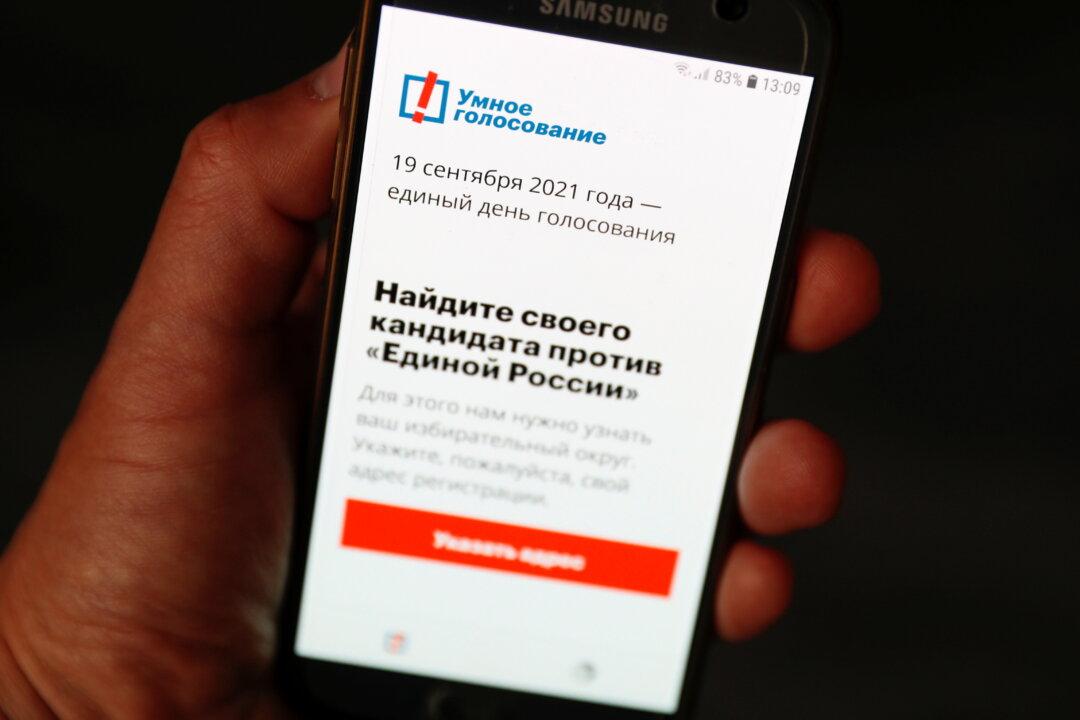Apple and Google removed a tactical voting app from its online store on Friday that was linked to Kremlin critic and jailed opposition leader Alexei Navalny as polls opened across Russia for three days of voting in a parliamentary election.
The move was prompted after Russian authorities put pressure on the U.S. tech giants to remove the app from their stores, saying a refusal to do so would be treated as meddling in its parliamentary election while also threatening the companies with fines.





